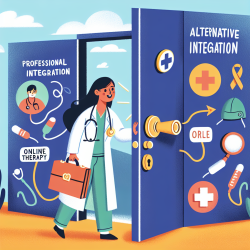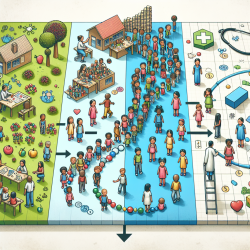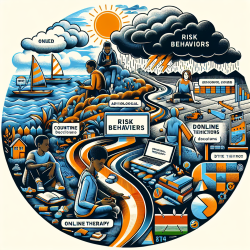Introduction: The Untapped Potential of Immigrant Medical Professionals
In today's globalized world, the underutilization and underemployment of skilled immigrants, particularly internationally trained health professionals, is a significant issue. These individuals often face barriers in obtaining licensure and employment in their trained fields, leading to financial burdens and economic losses for both the individuals and their host countries. The research article titled "Professional Integration of Immigrant Medical Professionals through Alternative Career Pathways: An Internet Scan to Synthesize the Current Landscape" sheds light on this pressing issue and offers insights into alternative career pathways (ACPs) that can benefit both immigrant medical professionals and the healthcare industry.
The Research: Exploring Alternative Career Pathways
The study conducted a comprehensive Internet scan to identify existing initiatives and resources that support immigrant medical professionals in pursuing alternative careers. By systematically searching popular search engines, the researchers identified 280 webpages, from which 16 were selected for detailed analysis. These pages provided information on various regulated and non-regulated alternative careers, as well as the transferable skills that immigrant medical professionals possess.
Key Findings: Opportunities for Professional Integration
The research highlights several key findings that can guide immigrant medical professionals in their pursuit of alternative careers:
- Regulated and Non-Regulated Careers: The study identified a range of alternative careers, some of which require licensure and others that do not. Regulated careers include roles such as medical laboratory technologists and speech-language pathologists, while non-regulated careers encompass positions like health educators and community health workers.
- Transferable Skills: Immigrant medical professionals possess a wealth of transferable skills, including medical knowledge, communication skills, and analytical abilities. These skills can be leveraged in various alternative careers, enhancing their prospects for professional integration.
- Support Resources: The study found that while there are some resources available to support immigrant medical professionals, more systemic policies and targeted programs are needed to facilitate their integration into alternative careers.
Implementing Research Outcomes: Steps for Practitioners
Practitioners in the field of speech-language pathology and other healthcare professions can take several steps to implement the outcomes of this research:
- Leverage Transferable Skills: Identify and highlight the transferable skills of immigrant medical professionals in job applications and interviews. Emphasize their medical knowledge, communication skills, and adaptability to potential employers.
- Explore Alternative Career Options: Encourage immigrant medical professionals to explore alternative career options that align with their skills and interests. This may involve pursuing additional training or certifications in areas such as health education or community health.
- Advocate for Policy Changes: Engage with policymakers and organizations to advocate for systemic changes that support the integration of immigrant medical professionals into alternative careers. This includes developing targeted programs and resources that address their unique needs.
Conclusion: A Call to Action
The integration of immigrant medical professionals into alternative careers is a critical issue that requires attention from policymakers, practitioners, and the healthcare industry as a whole. By leveraging their transferable skills and exploring alternative career pathways, these professionals can contribute significantly to the healthcare sector and the economy. It is essential to continue research and development in this area to create more opportunities and support for immigrant medical professionals.
To read the original research paper, please follow this link: Professional integration of immigrant medical professionals through alternative career pathways: an Internet scan to synthesize the current landscape.










